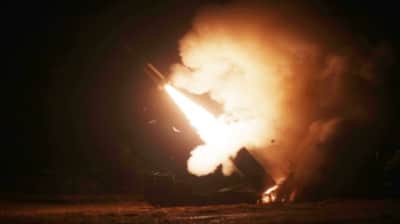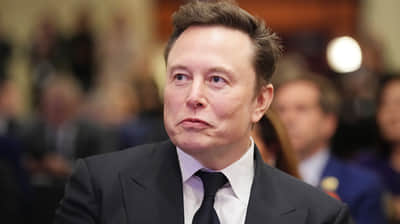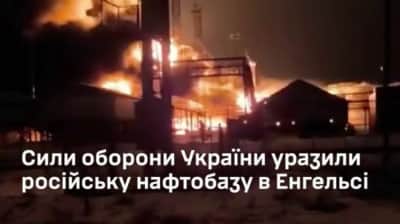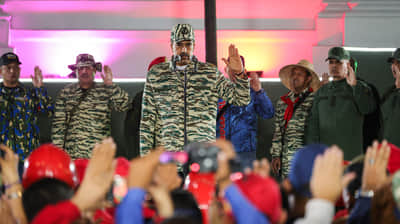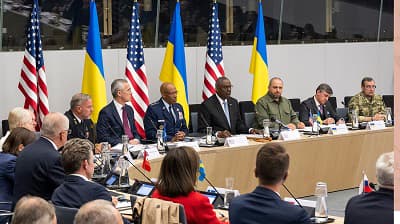Trump's peace plan may involve Ukraine giving up Russian-occupied territories and NATO membership – Reuters

Reuters has analysed the proposals put forward by US President-elect Donald Trump’s advisers with regard to the peace plan for Ukraine. They suggest giving Russia a significant part of the Ukrainian territory captured as a result of military aggression "for the foreseeable future".
Source: Reuters
Quote: "Advisers to Donald Trump publicly and privately are floating proposals to end the Ukraine war that would cede large parts of the country to Russia for the foreseeable future, according to a Reuters analysis of their statements and interviews with several people close to the U.S. president-elect.
Trump's advisers would try forcing Moscow and Kyiv into negotiations with carrots and sticks, including halting military aid to Kyiv unless it agrees to talk but boosting assistance if… Vladimir Putin refuses."
Details: The proposals put forward by three senior advisers – including Keith Kellogg, Trump's special representative for the Russo-Ukrainian war – share common components, namely taking NATO membership for Ukraine off the table.
Trump's advisers' proposals provide an insight into the likely parameters of his peace plan, Reuters says.
Faced with personnel shortages and increasing territory losses, Ukraine’s President Volodymyr Zelenskyy has indicated that he may be willing to negotiate.
While he still hopes to join NATO, Zelenskyy said this week that Ukraine must seek diplomatic ways to regain occupied territory.
According to Reuters, Putin was willing to end the war in May by negotiating a ceasefire on the line of contact, but he also said he would fight on if Kyiv and the West did not respond.
As of last week, Trump had not yet formed a central working group to draw up the peace plan, according to four advisers who requested anonymity in order to speak about confidential conversations. They say several advisers have shared ideas in public forums, including with Trump.
Ultimately, the peace agreement will most likely be contingent on a direct personal meeting between Trump, Putin, and Zelenskyy, the advisers told Reuters.
A former Trump national security official participating in the transition said there are three main proposals: the Kellogg plan; a plan proposed by Vice President-elect J.D. Vance; and a plan by Richard Grenell, Trump's former interim intelligence head.
Kellogg's plan, which he co-wrote with former National Security Council staffer Fred Fleitz and delivered to Trump earlier this year, calls for the current front lines to be frozen.
It is thought that Trump will only provide Ukraine with more American weapons if Kyiv agrees to peace talks. At the same time, he will warn Moscow that the US will increase its assistance to Ukraine if Russia refuses to negotiate. NATO membership for Ukraine will be shelved.
Under the proposal, Ukraine would also be offered US security guarantees, which may include an increase in arms supplies following the agreement.
Vance, who as a US senator opposed aid to Ukraine, proposed a different idea in September.
He told US podcaster Shawn Ryan that the agreement would most likely include a demilitarised zone along the present front line that would be "heavily fortified" to deter further Russian incursions. His proposal would deny Ukraine NATO membership.
Grenell, Trump's former ambassador to Germany, argued during a Bloomberg roundtable in July for "autonomous zones" to be established in eastern Ukraine, but did not elaborate on his position. He has also argued that America's interests are not served by NATO membership for Ukraine.
Analysts and former national security officials say some of these suggestions would undoubtedly face pushback from Ukrainian President Volodymyr Zelenskyy, who has included a NATO invitation in his Victory Plan, and from European allies and some US politicians.
Last week, Ukraine's foreign minister sent a letter to his NATO counterparts requesting that an invitation to join should be issued at a meeting of foreign ministers on Tuesday.
Some European partners have signalled a willingness to increase help to Ukraine, and US President Joe Biden continues to supply arms. "That could cost Trump some leverage to push Kyiv to the table," Reuters says.
Kellogg's proposal, which would increase aid to Ukraine if Putin does not sit down at the negotiating table, may meet with opposition in Congress, where some of Trump's closest allies oppose increased military aid to the country.
"I don’t think anybody has any realistic plan for ending this," said former US intelligence official Eugene Rumer.
Support UP or become our patron!
